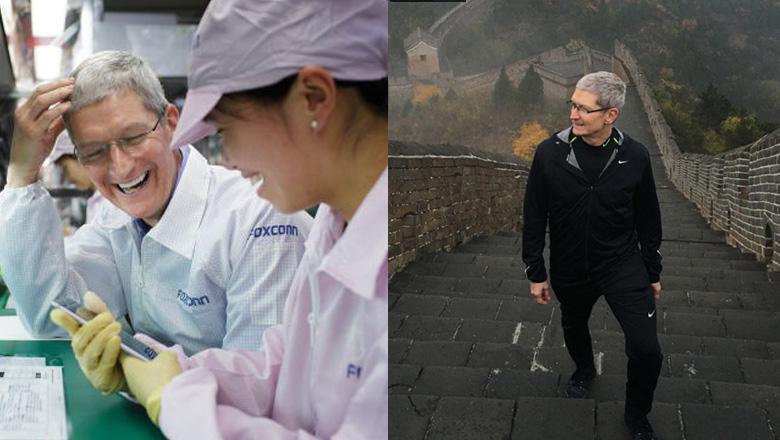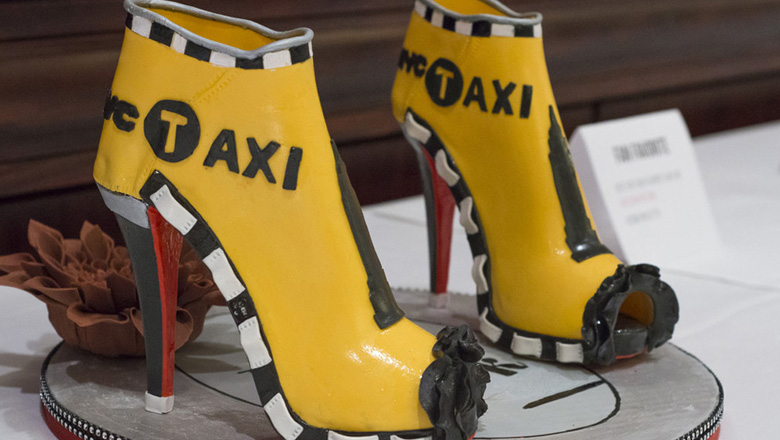What makes us human
Updated: 2016-05-18 07:55
By Mei Jia(China Daily)
|
||||||||
Pop-science author draws big audiences with his perspective on our species, Mei Jia reports.
To many people's surprise, a book on anthropology by an Israeli historian captivated Chinese readers, as it did audiences all over the world.
Yuval Noah Harari, a 40-year-old history professor with Hebrew University of Jerusalem, might be the first writer ever to present an author's show in China on his global best-seller Sapiens: A Brief History of Humankind.
The book is currently Amazon's 74th global best-seller among English titles. It's published in 43 versions in different languages. Facebook's CEO Mark Zuckerberg has listed it as his book of the year for 2015.
Harari is also a popular TED speaker and online course lecturer with 110,000 followers.
When he faced an audience of about 2,700 in Beijing Expo Theater in late April, Harari was like a rock star. The audience listened attentively through almost four hours to the very end, some of them reluctant to leave. There were 140,000 more who paid to watch his show live via streaming websites.
"It's my first time in China. I didn't expect and am much impressed by the young in the audience," Harari tells China Daily. His assistant calls the China trip "his most intense book tour".
Shu Ting, editor from the China Citic Press and the show's organizer, says Harari's ideas of putting our everyday life back into macro-history, and that Homo sapiens, our far ancestors, differed from other animals with the ability to tell and believe in fictional reality, have influenced and inspired many in China, including business leaders, scientists and young people.
Shu says the press has printed 600,000 copies, and two-thirds are sold. According to TouTiao.com's big data survey, 3.56 million readers in the country are interested in the book, 68 percent of whom are between 18 and 23 years old.
"Money is a fictional story we're told, as well as empire, religion and more," Harari says.
"We believe money, a piece of paper, can be exchanged for a real banana, but the chimpanzees won't.
"In this sense, bankers are better storytellers than the Nobel literature winners."
Wu Ningchuan from TMTPost.com even calls the book an internet Bible, which is especially enlightening to internet business and startups.
"Internet business is about the ability to create and tell new stories, and the goal of making money through selling 'happiness' to users, as Harari states in his book," Wu says.
Harari himself is a wonderful storyteller, too - from WeChat to his book's stories from ancient Chinese history.
"It is important for me to communicate well with the audience in different countries," he says.
"Examples are to make it easier for the readers to understand and they need to be familiar to the reader."
He is one of the rare and smart writers who would change seven to eight examples and offer a customized academic book to a different market.
"When I write Queen Elizabeth I as an example of powerful women to the English audience, I use the Empress Dowager at the end of the Qing Dynasty for the Chinese. Football in the English version for the UK market and basketball/baseball in the US," he adds.
Gao Yi, history professor at Peking University, says: "I'm absorbed by Harari's listing of historical events that we feel close to."
What impresses Gao most is Harari's crossover on many different subjects and realms of knowledge.
Harari set out to write a history book for general readers but was turned down by five publishers in Israel.
The book dwells on human history over 2 million years, covering three key revolutions (cognitive, agricultural and scientific) and one phase of human unification.
Finally published in Hebrew in 2011, and in English in 2014, it won China's Wenjin Book Award from the National Library for best book of that year.
To cover 2 million years in no more than 500 pages, Harari engages and connects ideas from biology, archaeology, politics, economy, genetics and AI studies.
"History is complicated. To really understand, you need to look at it from many angles at the same time and use multiple measurements," says Harari.
He also devotes one chapter to the subject of happiness, arguing that we're not happier than our ancestors, as we're filled with more desires.
He says historians seldom look at people's inner desire for happiness, especially viewing from the long run of history. But his ideas have resonated with the Chinese readers' need for "chicken soup" and soul exploration.
"People don't make the most of the opportunities that their jobs offer them," he adds.
Harari specialized in medieval history and military history.
But with experience and a secure professional position, he began to be bolder and try to look at the bigger questions.
"The more you understand reality and your place in it, you can be much more calm and peaceful," he says, adding his hobbies include walking in the woods and two hours of meditation every day.
His next book, History of Tomorrow, will be available in English soon and in Chinese, too.
Shu says Harari shows readers an exciting path, adding that Chinese audiences are willing to pay for getting new knowledge via authors' shows.
Born in 1976 in a Jewish family to an engineer father and secretary mother, Harari received his PhD from the University of Oxford in 2002 at age 26.
"I was curious about big questions on why the world is the way it is and the deep forces that shape reality and our life, but didn't get satisfied with answers when young from parents and teachers. They seemed to be not interested in these questions," he says.
"Most people when young ask those big questions, but by 20-something, they put these questions aside, and think about practical issues." he says.
"In my case, I just did not do that and they continued to be very central for me, from 14 to now."
Contact the writer at meijia@chinadaily.com.cn
Q&A: Yuval Noah Harari
'I see the world has many good things'
Are you pessimistic about our future?
I'm not a pessimist and I'm trying to be realistic about the condition of the world and what we're to face. Pessimists try to find something wrong with every human invention and development. I'm not.
I see the world has many good things. This is the first time in history that humankind has managed to overcome famine.
To date, this is the first government in Chinese history to solve the biggest problem of famine, which is a wonderful development. We also see a substantial reduction in violence. Previously 10 percent of mortality was caused by human violence; today it is less than 1 percent.
But there are also problematic developments, like climate change and new technology that may get out of control, like Artificial Intelligence.
Within 30-40 years, most humans will have no job, being taken over by AI. The biggest question in politics and economics in 21st century is what to do with all those masses of "useless" people.
I'm afraid there is not enough attention given to these issues by government and the public. Governments are very busy with traditional problems. And it's the duty of historians and philosophers to understand present-day technology, think about them in broader terms, and warn people of their risks.
What do you see about the future of China?
The future of China is also the future of the world. The future of the world is also the future of China.
Today, in the world, there are no independent countries. China has no separate future from the other countries - it's all combined.
The major problems of humankind in the 21st century will all be global in nature.
Another positive development in China is that it's thinking in global terms instead of local terms.
You're living with your same-sex partner?
Oh, he's staying next door (in the Beijing hotel). He is my agent and accompanied me here.
Looking back, if something exists, it means it's part of nature. Not all things existing are good. If we're to judge, the question is not whether something is natural, but its impact on happiness and misery of living beings. It's not homosexuality that caused miseries. It's prosecution of it that caused it.
(China Daily 05/18/2016 page20)
- Canadian PM to introduce transgender rights bill
- Hillary Clinton says her husband not to serve in her cabinet
- New York cake show designs fool your eyes
- ROK prosecutors seek 17-year prison term for attacker of US envoy
- World's biggest plane leaves Australia
- Conference calls for females to be put at forefront of development

 Can you still recognize these cities?
Can you still recognize these cities?
 A private museum owner's devotion to cultural protection
A private museum owner's devotion to cultural protection
 China's top 10 archaeological discoveries
China's top 10 archaeological discoveries
 Apple's CEO Tim Cook's eight visits to China in four years
Apple's CEO Tim Cook's eight visits to China in four years
 Annual New York cake show designs fool your eyes
Annual New York cake show designs fool your eyes
 Divers find ancient Roman cargo from shipwreck in Israel
Divers find ancient Roman cargo from shipwreck in Israel
 Taoist priests worship their ancestors in Central China
Taoist priests worship their ancestors in Central China
 The world in photos: May 9-May 15
The world in photos: May 9-May 15
Most Viewed
Editor's Picks

|

|

|

|

|

|
Today's Top News
Liang avoids jail in shooting death
China's finance minister addresses ratings downgrade
Duke alumni visit Chinese Embassy
Marriott unlikely to top Anbang offer for Starwood: Observers
Chinese biopharma debuts on Nasdaq
What ends Jeb Bush's White House hopes
Investigation for Nicolas's campaign
Will US-ASEAN meeting be good for region?
US Weekly

|

|







